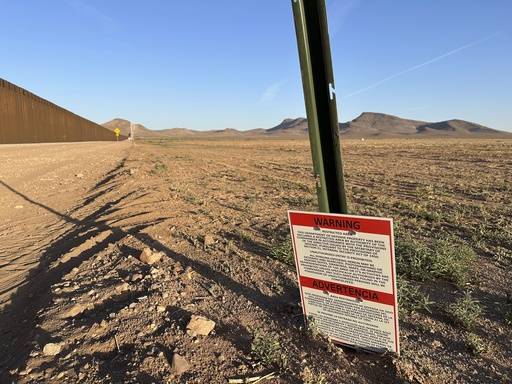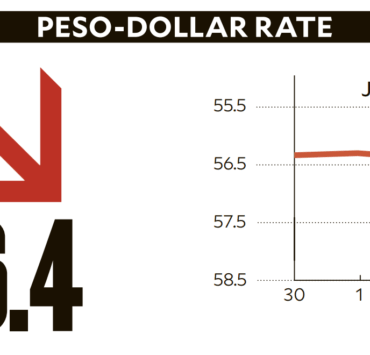US expands militarized border zones

COLUMBUS, New Mexico—Orange no-entry signs posted by the US military in English and Spanish dot the New Mexico desert, where a border wall cuts past onion fields and parched ranches with tufts of tall grass growing amidst wiry brush and yucca trees.
The Army has posted thousands of the warnings in New Mexico and western Texas, declaring a “restricted area by authority of the commander.”
It’s part of a major shift that has thrust the military into border enforcement with Mexico like never before.
The move places long stretches of the border under the supervision of nearby military bases, empowering US troops to detain people who enter the country illegally and sidestep a law prohibiting military involvement in civilian law enforcement. It is done under the authority of the national emergency on the border declared by President Donald Trump on his first day in office.
US authorities say the zones are needed to close gaps in border enforcement and help in the wider fight against human smuggling networks and brutal drug cartels.
The militarization is being challenged in court, and has been criticized by civil rights advocates, humanitarian aid groups and outdoor enthusiasts who object to being blocked from public lands while troops have free rein.
Migrant deaths
Abbey Carpenter, a leader of a search-and-rescue group for missing migrants, said public access is being denied across sweltering stretches of desert where migrant deaths have surged.
“Maybe there are more deaths, but we don’t know,” she said.
Two militarized zones form a buffer along 370 kilometers of border, from Fort Hancock, Texas, through El Paso and westward across vast New Mexico ranchlands.
The Defense Department added an additional 400-kilometer zone last week in Texas’ Rio Grande Valley and plans another near Yuma, Arizona. Combined, the zones will cover nearly one-third of the U.S. border with Mexico.
They are patrolled by at least 7,600 members of the armed forces, vastly expanding the US government presence on the border.
Reaction to the military buffer has been mixed among residents of New Mexico’s rural Luna County, where a strong culture of individual liberty is tempered by the desire to squelch networks bringing migrants and contraband across the border.
“We as a family have always been very supportive of the mission, and very supportive of border security,” said James Johnson, a fourth-generation farmer overseeing seasonal laborers as they filled giant plastic crates with onions, earning $22 per container.
Military deployments under prior presidents put “eyes and ears” on the border, Johnson said. This version is “trying to give some teeth.”
Trespassing charges
Nicole Wieman, an Army command spokesperson, said the Army is negotiating possible public access for recreation and hunting, and will honor private rights to grazing and mining.
More than 1,400 migrants have been charged with trespassing on military territory, facing a possible 18-month prison sentence for a first offense. That’s on top of an illegal entry charge that brings up to six months in custody. After that, most are turned over to US Customs and Border Protection for likely deportation. There have been no apparent arrests of US citizens.
Border Patrol arrests along the southern border this year have dropped to the lowest level in six decades, including a 30-percent decrease in June from the prior month as attempted crossings dwindle. On June 28, the Border Patrol made only 137 arrests, a stark contrast with late 2023, when arrests topped 10,000 on the busiest days.
Court challenge
Federal public defenders have challenged the military’s new oversight of public land in New Mexico, seizing on the arrest of a Mexican man for trespassing through remote terrain to test the legal waters.
They decried the designation of a new military zone without congressional authorization “for the sole purpose of enabling military action on American soil” as “a matter of staggering and unpreceded political significance.” A judge has not ruled on the issue.
In the meantime, court challenges to trespassing charges in the militarized zone have met with a mixture of convictions and acquittals at trial.
Ryan Ellison, the top federal prosecutor in New Mexico, won trespassing convictions in June against two immigrants who entered a militarized zone again after an initial warning. “There’s not going to be an issue as to whether or not they were on notice,” he told a recent news conference.
American Civil Liberties Union attorney Rebecca Sheff says the federal government is testing a more punitive approach to border enforcement with the new military zones and worries it will be expanded border-wide.

















